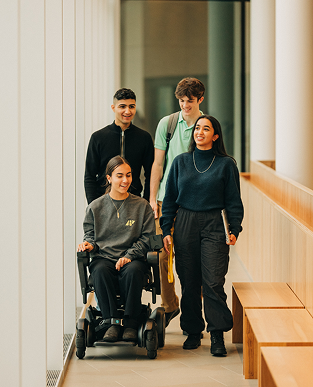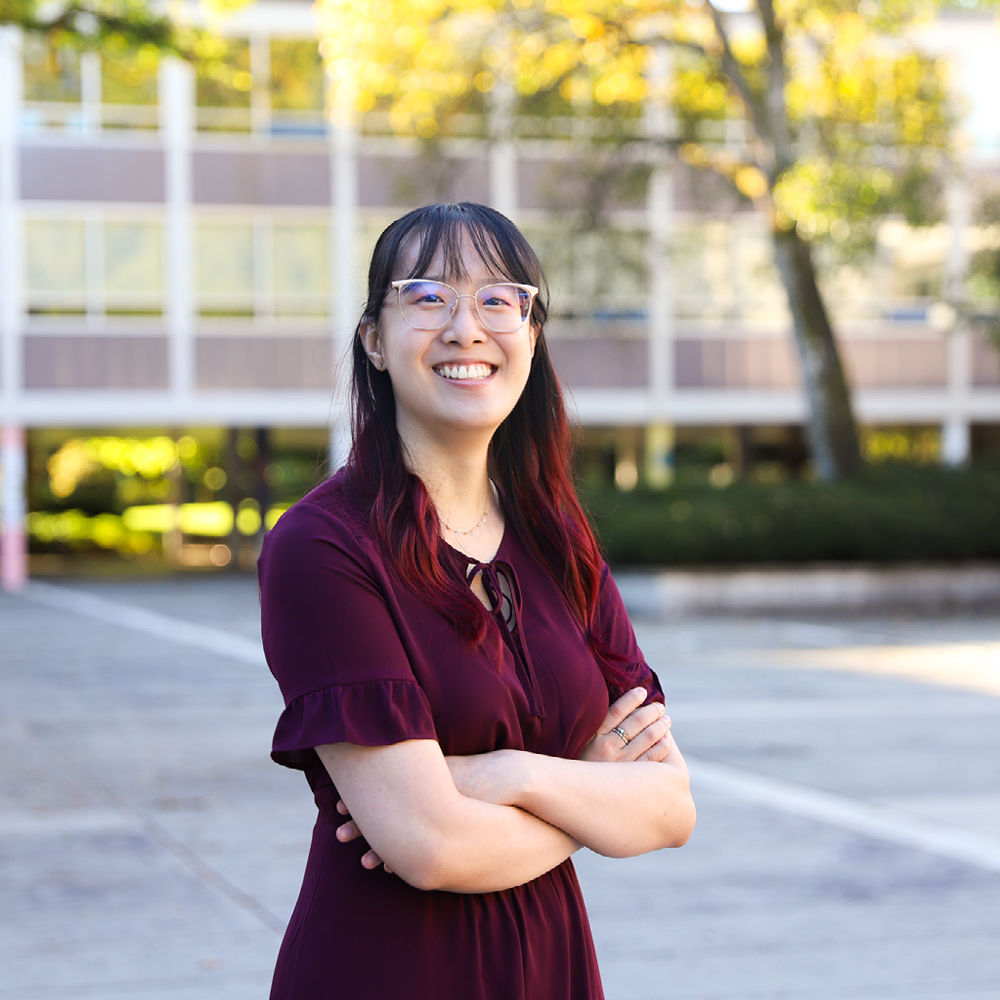Beedie Luminaries Mentor Spotlight: Kathy Ma
Kathy Ma, a Beedie Luminary mentor and UBC Co-op Career Educator, is passionate about guiding students through their educational journeys. With a background in Land and Food Systems, she’s inspired by complex social issues and believes in fostering patience, openness, and self-reflection. Kathy values the meaningful connections mentorship brings, helping students explore new possibilities and navigate life’s transitions.
Work Title | Company:
Co-op Career Educator, Equity & Inclusion / Arts Co-op Program, The University of British Columbia.
Why did you decide to become a mentor with Beedie Luminaries?
It was a bit of a coincidence that I came across the Beedie Luminaries program when I was trying to find ways to stay involved as a UBC alumnus that was beyond transactional interactions. The idea that I could mentor another student who was in the same shoes as I was a few years ago and share what I learned was amazing. I like hearing about their period of transition and growth as they venture through university, and supporting them has been fulfilling.
Not every person has the opportunity to be a mentor or mentee and so programs like Beedie Luminaries have been the ideal option to engage in mentorship. I have been pleasantly surprised at how eager and dedicated the students are to the mentoring program, this really helps to develop a strong connection. I’m sure that the strong relationships I’ve built with my mentees will continue beyond the Beedie Luminaries program.
What was your favourite subject in school?
So, I didn’t actually have a favourite subject in high school, but university was when I discovered the subject I was passionate about. I graduated from the Faculty of Land and Food Systems and we learned about ‘wicked problems’, imagine food insecurity, poverty, social justice, and climate change. The opportunity to learn practical frameworks and apply it to these wicked problems was fascinating to say the least. I felt like I was learning transferable skills to think about potential solutions to problems I would encounter in my lifetime. I also appreciated that I could see the real-life application of what I learned, which developed my values and perspectives that I bring with me as I interact with the world.
What are the three qualities that got you where you are today?
I would say conscientiousness, openness to learn, and self-reflection. Being diligent, persistent, organized, responsible and dedicated can take you far in everything that you do. It is a great foundation for both school and working to be conscientious. Openness to learning is a staple. We are in a fast-paced and evolving world, and being a learner will allow you to grow and achieve your goals. Finally, self-reflection is a key skill to be able to reflect on your experiences, emotions, and motivations and this can help become a compass by learning from the past and changing during the present for a better future.
Do you have a “favorite failure” of yours?
This was a hard one. I don’t think I have a “favourite failure” because even when there were times where I wasn’t where I wanted to be or experienced challenges, for example at a job that did not challenge me or taking a course I did not enjoy, I wouldn’t call those failures because I believe those were all moments where I learned the most about myself. What I liked, what I didn’t like, and this process of self-discovery really helped me continue on my journey to arrive at a spot where I felt energized, fulfilled, and valued. I find situations that were challenging and made you feel uncomfortable may seem like moments of failure, but realizing the level of growth you had can change it into a success instead.
What advice would you give to post-secondary students as they prepare to transition into the working world?
Be patient, open-minded and advocate for yourself. With how fast-paced technology is it can be hard to wait a year or a few years to advance to a position that aligns with your interests and skills. However, developing a foundation in potentially a less challenging role can help you build trust with your colleagues and managers for work that aligns more with your goals. Rather than having a strict career plan you’d like to follow, being open-minded to possibilities is a good way to allow you to identify new opportunities that come up. Finally, express your interest and connect with your colleagues and others at your organization to develop genuine relationships. Your patience, open-mindedness, and advocacy will help you to build trust and a positive reputation so that the future opportunities that align with your interest can make themselves visible.

